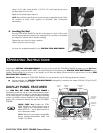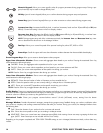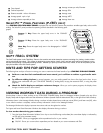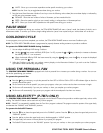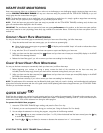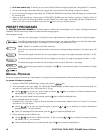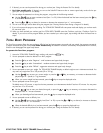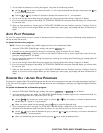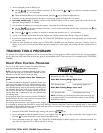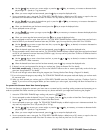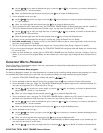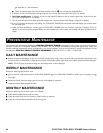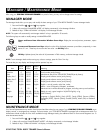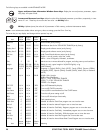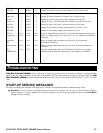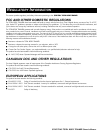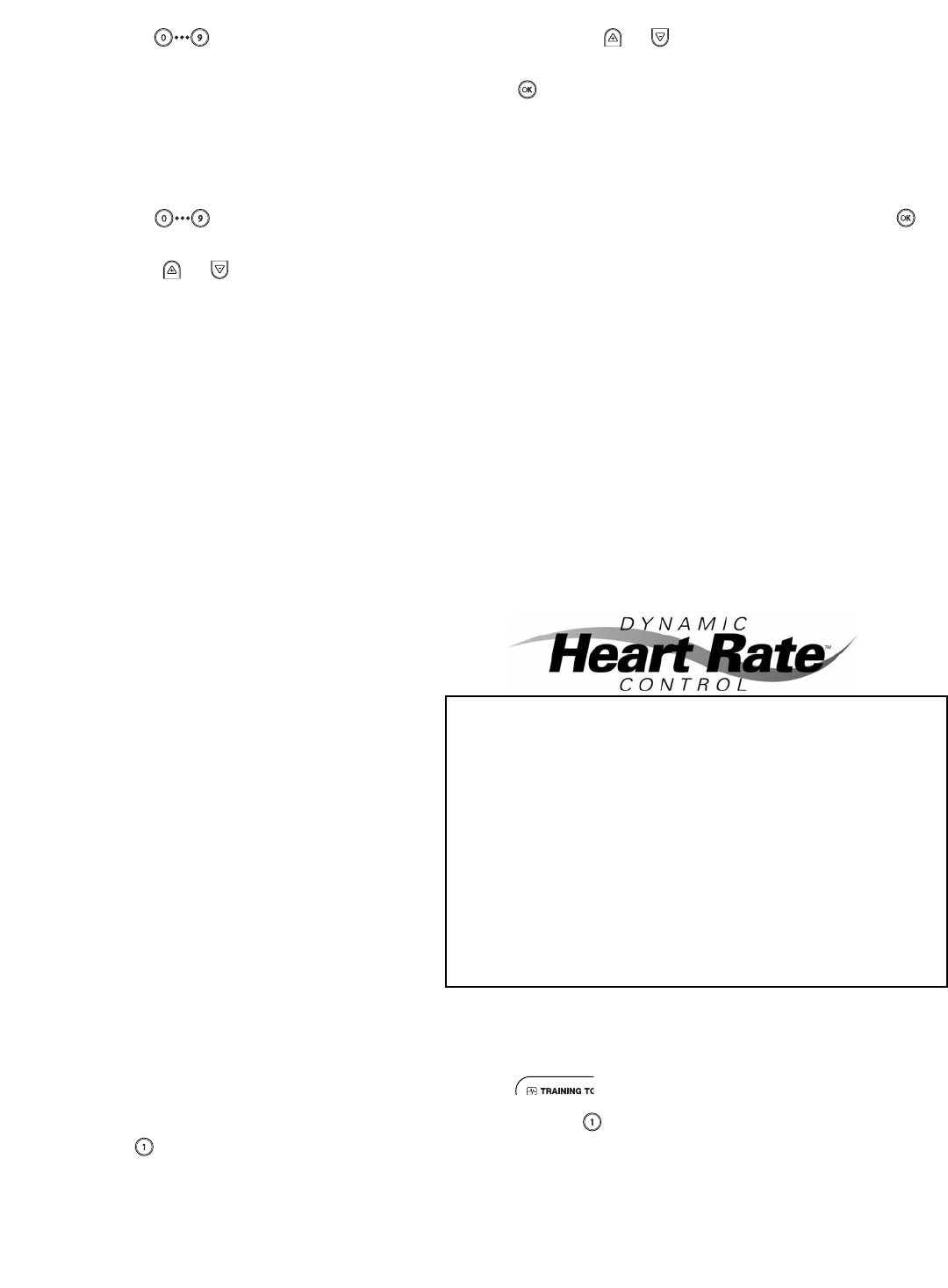
STAR TRAC TOTAL BODY TRAINER OWNER’S MANUAL 21
4. You are prompted to enter a difficulty LEVEL.
■ Use the keys to enter a difficulty level (from 1 to 20) or press the or key, as desired, to increase or decrease
the difficulty L
EVEL in 1 unit increments.
■ When the desired difficulty LEVEL has been entered, press the key to accept the displayed LEVEL.
5. If desired, you can use the personal fan during your workout (see “Using the Personal Fan” for details).
6. For P-tbtx models only: If desired, you can use the SelectFit™ feature to alter or remove upper body workout for the pro-
gram (see “Using SelectFit™” for details).
7. You can adjust the resistance L
EVEL during the program, using either of the following methods:
■ Use the keys to enter a resistance level (from 1 to 20). When the desired level has been entered, press the key
to confirm the resistance level.
■ Press the or key, as desired, to increase or decrease the resistance LEVEL in 1 unit increments.
8. You can scroll through workout data during the program (see “Viewing Workout Data During a Program” for details).
9. If you wish to pause the program, stop striding. The TOTAL BODY TRAINER will enter pause mode and display your workout results
for one entire cycle.
10. When you have reached your workout goal, the TOTAL BODY TRAINER enters the Cooldown cycle (see “Cooldown Cycle” for
details). If you wish to exit the program before you have reached your workout goal, stop striding and allow the Pause timer to
expire.
TRAINING TOOLS PROGRAMS
The TRAINING TOOLS programs include the HEART RATE CONTROL and WATTS CONTROL programs. When using the HEART RATE CONTROL programs,
use of a heart rate strap (rather than the heart rate grips) is recommended. (NOTE: Heart rate strap is not included with the TOTAL BODY
TRAINER.)
HEART RATE CONTROL PROGRAMS
TRAINING TOOLS offers both a Dynamic Heart Rate Control pro-
gram and a Constant Heart Rate Control program.
NOTE: For best results, use a heart rate strap. If user is wear-
ing a heart rate strap, the TOTAL BODY TRAINER will auto-
matically use the data from the heart rate strap.
To operate the Dynamic Heart Rate Control pro-
gram:
This heart rate feature is designed to gradually elevate your
heart rate to the upper end of your selected training range,
then gradually decrease your heart rate to the lower end of
your selected training range by dynamically controlling strid-
ing resistance. During the workout, this cycle will repeat sev-
eral times until the time goal is complete, creating an interval
training effect that is customized to the user’s desired heart
rate training range.
During program setup, there must be at least an 20 BPM dif-
ference between the lower heart rate limit and upper heart
rate limit to ensure an interval workout.
By including interval exercise in your regular aerobic program, greater effects are noticed. Your heart and muscles will adapt to the increas-
es in demand by utilizing stored calories for energy more effectively. Dynamic Heart Rate Control may potentially result in more calories
expended. It will strengthen the heart, provide stress relief and variety to a workout. This program is more effective in training the body to
remove excess lactic acid from the muscles.
1. Access the TOTAL BODY TRAINER, begin striding, and press the key.
2. You are prompted to select the desired T
RAINING TOOLS program. Press the key to select a Heart Rate Control program, then
press the key when prompted to select Interval Heart Rate Control.
3. You are prompted to enter your weight. The TOTAL BODY TRAINER displays a default weight as set in Maintenance Mode. You
may enter any weight from 50 to 350 pounds (22 to 159 kg).
To calculate your training zone, use the following formulas:
(theoretical max HR = 220 - Age)
Heart Rate Training Range Upper Level
_____________________x 0.75 = ___________________________
Your Theoretical Max Training Range Upper Limit
Heart Rate Training Range Lower Level
_____________________x 0.60 = ___________________________
Your Theoretical Max Training Range Lower Limit
NOTE: Calculating your theoretical maximum heart rate using age
is an approximation. For more information, please contact a fitness
professional or doctor.



